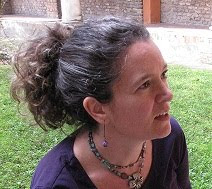Just as we are many people called to worship through one prayer book so might we be many people called to one ordination process. As I make the rituals and prayers of the Book of Common Prayer my own, might I not also make the ordination process my own?
Here’s where the analogy breaks down: We are called the People of the Book. Everything we do, as the people of God, on a Sunday morning is written in that book. I was once told that I could pray in any way I wanted on a Sunday morning, as long as the whole congregation had the same prayer in their hands. It is our communal actions in worship that define us as a community.
The ordination process is hidden. Its rubrics are only seen by the chosen few. We as followers can’t make ourselves in its image because we can’t see the image – we can’t even imagine the image. To hide the process away, like pre-Vatican II priests turned away from the congregation, creates a hocus pocus effect on the transformative nature of the Sacrament of Ordination.
After a year of worshiping in a non-denominational chapel, I know the value of knowing what comes next. The Book of Common Prayer is the skeleton that allows us freedom of movement. Wouldn’t it make sense that the ordination process be the same?


1 comment:
interesting post, Charlotte. And resonates with me. But isn't the ordination process fairly laid out? Is the hiddenness you refer to the conversations and conclusions that take place behind closed doors after the interviews have passed? Is it the feeling that your life is in others' control? Or is it something else. I mean, I have a thick thick packet that outlines the ordination process. But I think I know what mystery you are alluding to...
Post a Comment